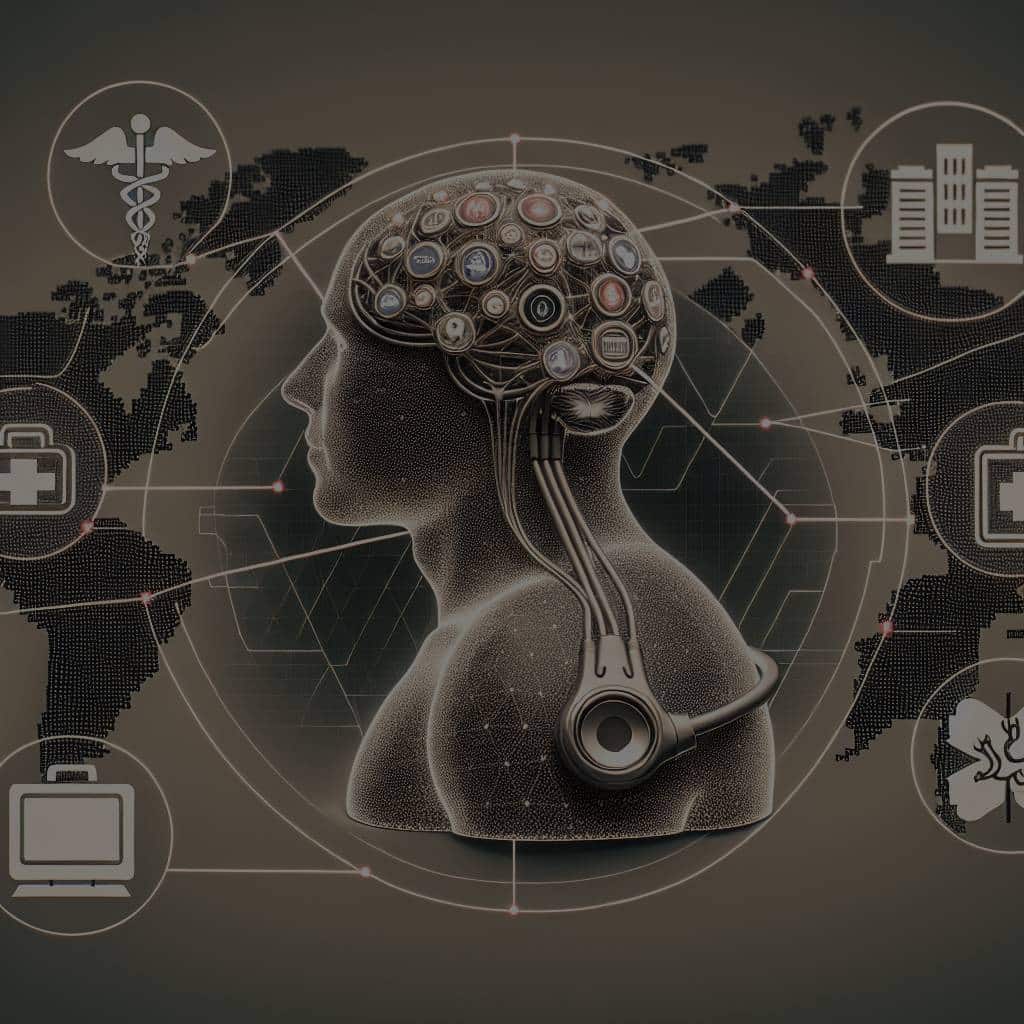What Are the Applications of Brain-Computer Interfaces in UK Healthcare?

In recent years, the field of brain-computer interface (BCI) technology has gained much attention within the UK healthcare sector. This cutting-edge technology holds the potential to revolutionize treatments for various medical conditions, and its application possibilities are rapidly expanding. Are you intrigued by how this technology could reshape the future of healthcare? Keep reading.
Understanding Brain-Computer Interfaces
A brain-computer interface, or BCI, is a system that facilitates a direct communication pathway between the brain and an external device. BCIs are often aimed at restoring, augmenting, or repairing human cognitive or sensory-motor functions.
Additional reading : How to Prepare for Extreme Weather Events in the UK: A Homeowner’s Guide?
The function of a BCI is to collect the brain signals, typically via an EEG (electroencephalogram) device, then process and translate these signals into commands that are carried out by the computer. The user can then control the computer or another device using their thoughts alone.
Over the past few years, several non-invasive and invasive BCI systems have been developed. Non-invasive BCIs are systems that do not require any surgical procedure, while invasive BCIs involve procedures such as implanting electrodes into the brain. Each type of BCI has its pros and cons, and the choice between the two largely depends on the specific application and the user’s medical condition.
In parallel : What Are the Trends in Upcycling and Repurposing in UK’s Fashion Industry?
BCI Technology in the UK Healthcare Market
The UK healthcare market has seen a burgeoning interest in BCI technology. This growth can be attributed to the increasing prevalence of various neurological disorders, the rising geriatric population, and the growing demand for effective and innovative diagnostic and treatment options.
The application of BCI technology in the UK healthcare market spans a wide range of disciplines. These include neurorehabilitation, neurology, psychiatry, and the development of assistive devices for individuals with physical disabilities.
Furthermore, the UK government’s increased funding for research and development in BCI technology, coupled with technological advancements in neuroimaging techniques, is expected to boost the market further.
Medical Applications of BCIs
BCI technology has several potential applications in the medical field. For instance, it is being used in the treatment of motor control disorders such as Parkinson’s disease and stroke.
BCIs can help patients regain control of their motor functions by translating neuronal signals into movements. This is achieved by connecting the BCI system to a robotic arm or prosthetic limb that the patient can control using their thoughts.
Another promising medical application of BCIs is in mental health treatment. For instance, BCIs can be used to monitor brain activity in real time, allowing physicians to identify irregular patterns and adjust treatment accordingly.
BCIs for Assistive Technology
BCI technology has the potential to substantially improve the quality of life for individuals with severe physical disabilities. For example, BCIs can be used to control prosthetic limbs, wheelchairs, and other assistive devices.
By using a BCI, individuals with paralysis or severe motor impairments can gain more autonomy in their daily lives. For example, a BCI can allow a person with quadriplegia to control a computer cursor or a robotic arm using their thoughts, thus bypassing the need for physical movement.
Furthermore, there is growing interest in the use of BCIs to improve communication for individuals with conditions that impair their ability to speak or write. By translating brain signals into text or speech, BCIs can provide these individuals with a new means of expressing themselves.
Challenges and Future Directions
Despite the significant progress that has been made in BCI technology, there are still many challenges to overcome. These include improving the accuracy and reliability of BCIs, making them more user-friendly, and addressing ethical issues related to privacy and autonomy.
However, with ongoing research and development, the potential applications of BCIs in the UK healthcare sector are likely to grow. As the technology matures, we can expect to see more widespread use of BCIs in the diagnosis and treatment of various medical conditions, as well as in the development of assistive technologies for individuals with physical disabilities.
Revolutionising Neurological Diagnostics and Therapies
As advancements in BCI technology continue, so does its potential to transform neurological diagnostics and therapies. The ability to analyse brain signals in real-time, offers a new frontier for understanding and treating neurological disorders. This is particularly significant in the UK, where around 1 in 6 people suffer from a neurological condition.
The use of BCI systems in diagnostics is redefining the medical approach to identifying and treating conditions such as epilepsy, Alzheimer’s, and sleep disorders. By accurately recording brain activity, health practitioners can tailor treatment plans to the individual patient based on their unique brain patterns. This personalised approach could lead to increased treatment effectiveness and improved patient outcomes.
Moreover, BCI technology is not only used for diagnosing neurological conditions, but also for therapeutic interventions. For instance, in neurofeedback therapies, patients are trained to control their own brain activity. This is done by providing them with real-time feedback on their brainwaves, which they can then learn to regulate. This method has shown positive results in managing conditions like ADHD and PTSD.
However, in spite of the considerable potential of BCI in shaping the future of neurological diagnostics and therapies, several challenges need to be addressed. These include ensuring the reliability and accuracy of the systems, as well as the ethical implications surrounding privacy and autonomy.
Moving Forward: The Future of BCIs in UK Healthcare
As we move forward, it’s clear that BCI technology is poised to play a significant role in the UK healthcare sector. From helping individuals regain motor control to providing new ways for communication, the potential applications of BCIs are vast and transformative.
UK’s healthcare market is expected to reach USD billion by the end of 2025, and BCI technology stands as a strong contender in driving this growth. With the UK government’s commitment to fund further research and the nation’s growing ageing population, the demand for innovative and effective treatments like BCIs is set to increase considerably.
The future of BCI devices seems bright, with technological advancements leading the way. The development of more user-friendly and accurate BCI systems could revolutionise not only the treatment of various medical conditions but also the quality of life for individuals with physical disabilities.
However, it’s vital to remember that this field is still in its infancy. Rigorous ethical discussions and regulations must be developed alongside the technological advancements in BCIs. Questions surrounding user privacy, consent, and data security need to be addressed to ensure a safe and beneficial implementation of this technology.
In conclusion, the application of brain-computer interfaces in the UK healthcare sector presents exciting opportunities. Although the path to widespread use may be challenging, the potential benefits of BCIs are vast. With continuous research and development, we can look forward to a future where BCI technology plays a crucial role in reshaping healthcare.
